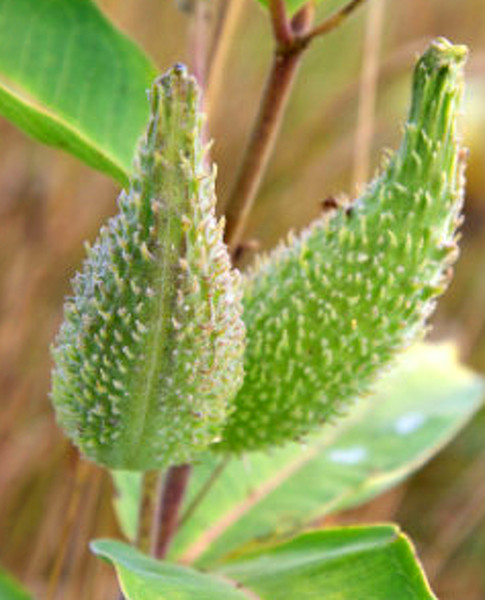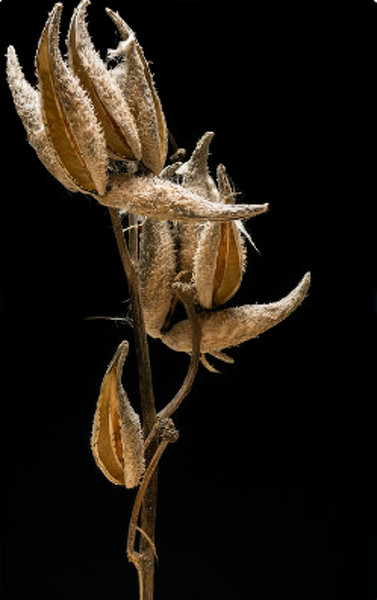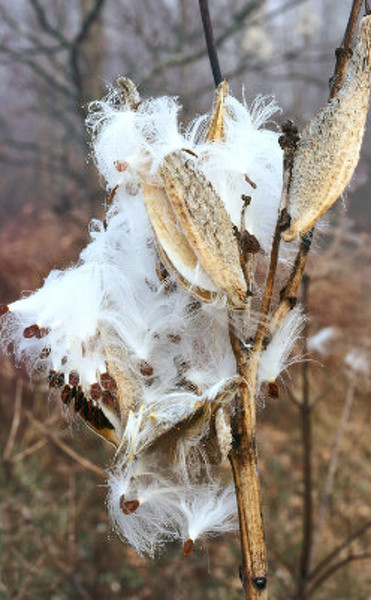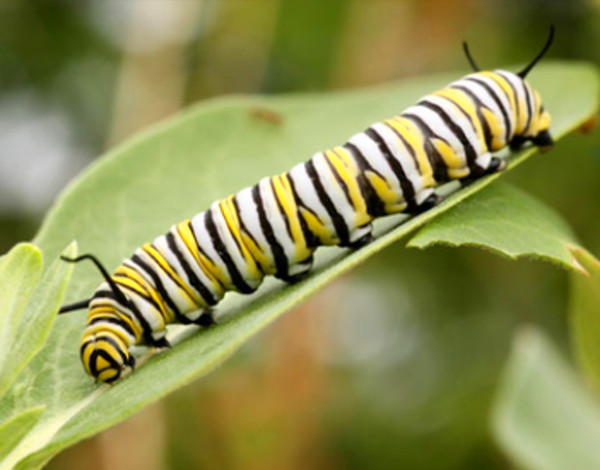Thursday, September 3rd, 2020
Got Milkweed?
The plants are natural habitat for beautiful butterflies
By Nancy Allen

Submitted Photo
Milkweed is the sole food source for the eastern monarch butterfly. These milkweed seed pods are green and not ready to pick.
Mercer Soil and Water Conservation District.
CELINA - A local agency aims to help the eastern monarch butterfly, whose numbers have declined dramatically due to the loss of milkweed, its sole food source.
Through Oct. 30, the public can drop off milkweed seed pods in the foyer at the county central services building on West Livingston Street in Celina. Milkweed is the only host plant the monarch uses for egg laying and caterpillar rearing. The plant also is vital for numerous other pollinator species.
"We're going to have a barrel in the front foyer of the building and people can drop off the pods from 8 a.m. to 4:30 p.m. Monday through Friday," said Ariel Hein, education technician at the Mercer County Soil and Water Conservation District. "It's best to put the pods in a paper bag to keep out moisture and then put them in the barrel."
A sign with instructions will be set up at the building, she said.
After the pods are collected, they will be picked up by Mercer County Pheasants Forever members, cleaned and some of the seeds shipped back to the Mercer SWCD for planting at various locations in the county, Hein said.

Submitted Photo
These milkweed seed pods are dry, brownish-gray in color and starting to pop open along the seams. They are ready to pick.
Mercer Soil and Water Conservation District
Those picking the pods should make sure they are ready for harvest, she noted. Many are still green and not ready yet. The pods should have a dry, brown or gray look and be popping open to expose the fuzz-topped tiny, black seeds.
Hein also cautioned those collecting the pods to wear gloves and a facial covering due to the COVID-19 pandemic.
Hein said monarchs and other pollinators need our help. The disappearance of milkweed across the United States has contributed to an 80% decline of the eastern monarch butterfly population during the past 20 years, according to SWCD information.
Many natural areas that once allowed the plants to thrive have been lost to development and agriculture.
"We just don't have the milkweed like we used to so this is a way we can help," she said. "Sometimes the district will (plant) some in our (natural resource) practices like in pollinator habitats or a wetland area."
The SWCD office started the annual seed pod collection program in 2016. The district and Pheasants Forever also will sponsor a contest among the county's five FFA chapters and numerous 4-H groups. Whichever group collects the most pods will earn a pizza party.
Though many events have been canceled due the ongoing coronavirus pandemic, organizers decided to go ahead with the collection program.
"We really don't know what the participation is going to be, but we didn't want to take opportunities away from the kids," she said. "It gets them outside, gives them something to do and they can socially distance."

Submitted Photo
These milkweed seed pods are very dry and have split open revealing the fuzz-tipped tiny seeds inside. They are ready to pick.
Mercer Soil and Water Conservation District
Hein said she thinks helping nature is important.
"Nature gives us so much, so I think we have to give back," she said. "The more milkweed pods we collect and plant, the more the monarchs will be attracted to our area for enjoyment and hopefully their numbers increase."
Monarchs and other butterflies are abundant right now. Good places to view butterflies include natural areas with wildflowers and muddy areas around ponds where they congregate to drink.






